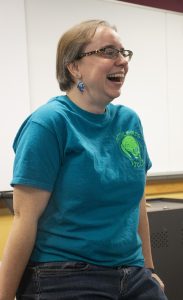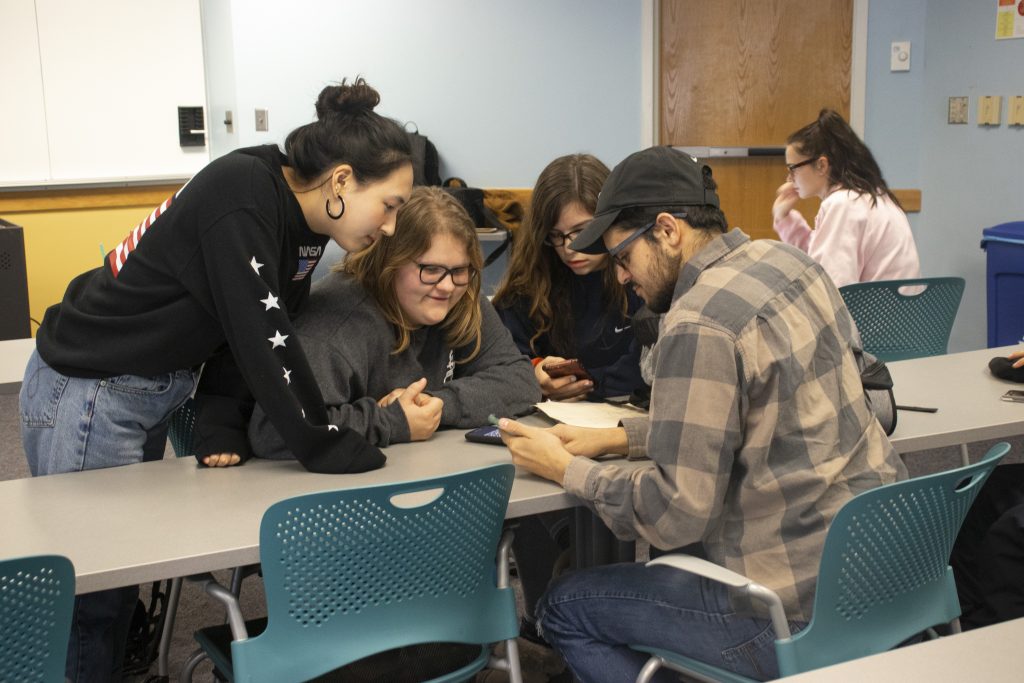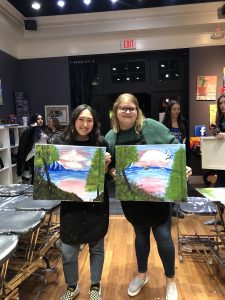

Kathleen Hardesty, better known as Kat, began testing the waters of the Active Minds Club last school year, but became president of the club in the fall semester. Mental health has always been something that Hardesty is passionate about and the Active Minds Club is a great outlet for her to learn tools to work with others with mental health issues, as well as improve upon her own mental wellbeing. It also allows other people to learn about different mental illnesses, which helps removes the stigma around them.
“What’s so nice about our group is that everyone has some experience with mental [illness], whether personally or a friend or family member, so they can speak on what it’s like to experience it,” Hardesty said. “That tends to help remove some of the stigma and stereotype around [mental illness] so that people are more ready to talk about it and understand it, which is our ultimate goal.”
Faith Kim oversees the social media and event planning for the Active Minds club. Kim says she loves what Active Minds stands for and she wants people to be educated on mental health and know that asking for help is nothing to be ashamed of.
“I’ve always felt like we need to normalize mental health, asking for help and finding ways to cope because I feel like mental first aid isn’t as encouraged,” Kim said. “Like, my parents have no idea about mental health stuff, and I know a lot of people need help and they can’t find it.”

The club’s activities include a “stress-less” week taking place in May before finals to prepare students for the stressful week. The club also assigns different issues to weeklong discussions and activities, such as the Obsessive-Compulsive disorder, eating disorder and suicide awareness weeks. They have also participated in a campaign with the national Active Minds organization in the fall semester called “Hug More.” The campaign was to promote consensual hugging on campus because of all the mental and physical benefits hugging offers, such as reducing anxiety and relieving stress and pain.
“We tried really hard to get as many consensual hugs between two different people [as possible] and get them photographed and collected into one central location online,” Hardesty said. “And here on campus we got 197 hugs, which is amazing.”
When discussing different issues, members look to each other’s experiences to better understand mental illness. Both Hardesty and Kim urge others to join this club because it reaps benefits not only for members, but others as well.

“We have a great program with Active Minds called VAR, [which stands for] validate, appreciate and refer,” said Hardesty. “[For instance, we might say] ‘I acknowledge that you are having a bad day, I appreciate the fact that things are tough for you right now and if talking to me doesn’t help you enough, here are some resources for people that can help more.’”
Hardesty is also urging people to take the program training to be able to help and guide members and others through mental health issues.
The Active Minds Club has brought benefits to Hardesty that have made coming to school an easier task, and when it’s not easy, it has taught her better ways to cope with the stress. It has also helped her with communicating and working with her son, who is diagnosed on the ADD/ADHD spectrum.
“I’ve been super happy this semester,” Hardesty said. “It’s a physical [weight off my shoulders] every time I step on campus, it’s amazing. Being part of this club has given me some better tools to help my son, too.”
The Active Minds club pushes for self-awareness, mental health awareness and the importance of taking care of someone’s mind as much as their bodies.
Hardesty said, “We must realize that our brains and our feelings and our minds are just as important as our physical health is, and should be just as normal to talk about as our physical health.”
Story by Gracyn Shulista





















